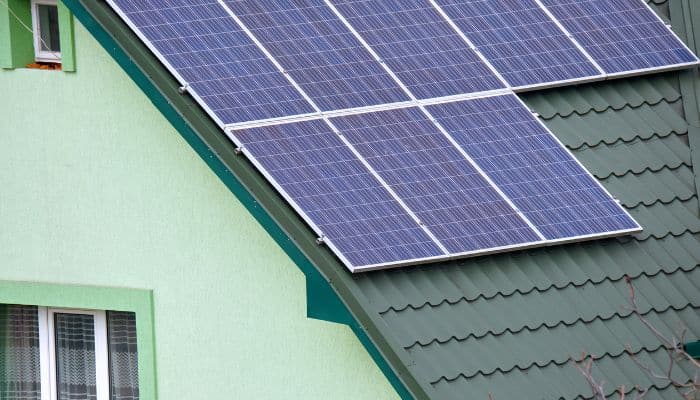Shining a Light on Solar Costs for Restaurant Owners
The restaurant industry has recently witnessed a growing emphasis on sustainability and environmental responsibility. Restaurant owners are exploring ways to reduce their carbon footprint and operating costs, and solar energy is a popular option.
Solar power aligns with eco-friendly values and can provide long-term financial benefits. Many factors can affect the cost of solar panel installation, which you should consider before adopting this green technology.
The Basics of Solar Energy
Solar energy harnesses the power of the sun to generate electricity. Solar panels, typically installed on rooftops or in open areas, capture sunlight and convert it into electricity through a process known as photovoltaics.
You can then use this electricity to power various appliances and systems within the restaurant, like lighting, HVAC (heating, ventilation and air conditioning), refrigeration and kitchen equipment. Solar energy is becoming a popular choice for households and businesses, and research predicts that by 2024, 2.5% of all U.S. households will use solar power.
The Costs of Going Solar
The upfront cost of installing a solar panel system can be a major concern for restaurant owners. However, it’s essential to recognize these costs have decreased significantly in recent years. In fact, between 2010 and 2020, the cost of installing a solar system went down an astounding 78%, making it a more affordable energy option for business owners.
However, some factors can influence the cost of a solar panel installation, including:
- System size: The size of the solar panel system you need depends on your restaurant’s energy consumption. A larger system will cost more but can also generate more savings.
- Location: The geographical location of your restaurant plays a crucial role. Areas with more sunlight require a smaller system to generate the same amount of electricity.
- Quality and type of panels: High-quality, more efficient solar panels may cost more upfront but can provide better long-term returns.
- Installation costs: Labor, permits, materials and other installation expenses can vary by location and provider.
The average cost of installing solar panels differs by state, ranging from $2.50 to $5 per watt. To determine the specific costs for your restaurant, it’s important to consult a reputable solar installer who can assess your energy needs and provide a detailed quote.
Financial Incentives and Return on Investment
While the initial investment may seem daunting, restaurant owners can take advantage of various financial incentives and financing options to make the transition more affordable:
- Federal and state tax credits: The federal government and many states offer tax credits for solar installations, reducing the upfront cost. In August 2022, Congress extended the tax credits, and solar PV systems installed are eligible for a 30% tax credit. This number will decrease to 26% for systems installed in 2033.
- Net metering: This policy allows restaurant owners to sell excess solar electricity back to the grid, potentially earning them credits on their energy bills.
- Financing options: Many solar installers offer financing plans that allow restaurant owners to pay for their solar system over time, often with little to no down payments.
A solar panel system’s return on investment (ROI) can be quite appealing. Over time, the energy savings and potential revenue from excess electricity generation can outweigh the initial costs. Most residential solar systems begin to pay for themselves after 8–10 years, however, the exact payback period varies depending on factors like system size and energy consumption.
Environmental Benefits
Beyond the financial advantages, adopting solar energy is one of the ways you can drastically reduce a restaurant’s environmental impact. Restaurant owners can reduce their carbon footprint, decrease reliance on fossil fuels and contribute to a more sustainable future by generating clean energy from the sun.
Energy Independence and Stability
An often overlooked advantage of solar energy is the increased independence it provides. By generating electricity on-site, your restaurant becomes less reliant on external power sources and less susceptible to energy price fluctuations. This stability can be especially crucial during peak seasons or when facing unforeseen disruptions.
Solar power provides a reliable source of electricity, ensuring your restaurant can continue to operate smoothly regardless of external factors. This added resilience can be a game-changer for restaurant owners.
Maintenance and Longevity
Solar panel systems are relatively low-maintenance. Regular cleaning and occasional inspections are typically all that’s required to keep the system running efficiently. Most solar panels have warranties that guarantee performance for 20 to 25 years, with many systems continuing to produce electricity well beyond that timeline. The estimated operational life span of PV solar panels is 30 to 35 years.
Scalability
A compelling aspect of solar energy for restaurant owners is its scalability. Solar companies can customize panels to suit your specific energy needs, whether you operate a small cafe or a large dining establishment.
As your restaurant grows, you can easily expand your solar system to accommodate increased energy demands, providing a flexible and sustainable energy solution that adapts to your requirements.
A Bright Future for Restaurants
Solar energy is an attractive option for restaurant owners looking into sustainability while reducing operating costs. While the upfront costs may appear intimidating, the long-term financial benefits and financial incentives make it a viable investment.
Solar power aligns with the growing eco-conscious dining movement, attracting environmentally aware customers and enhancing a restaurant’s reputation.



Comments are closed.